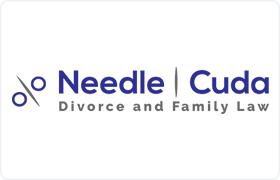 Shelton Divorce Lawyers, Connecticut
Shelton Divorce Lawyers, Connecticut
Sponsored Law Firm
-
 x
x

Click For More Info:
-
Needle | Cuda: Divorce & Family Law
830 Post Road East Suite 301 Westport, CT 06880» view mapDivorce & Family Law Experienced. Savvy. Straightforward.
At Needle | Cuda, we know when you come to see us that you may be going through the most difficult time of your life. That is why we style ourselves a “high touch” law firm.
203-557-9500
Includes: Alimony & Spousal Support
Sponsored Lawyers
1-8 of 8 matches
Divorce & Family Law, Child Support, Alimony & Spousal Support, Guardianships & Conservatorships, Child Custody
Attorney Gans is known for competence, integrity, compassion, and the use of effective resolution tactics. While we are experienced and prepared to take a case to trial when necessary, we focus our efforts on resolving family disputes in an amicable nature where possible. As a result of our collaborative resolution approach, we have earned the respect and confidence of family court judges and personnel as well as former clients. This reputation helps our divorce and probate lawyers immeasurably when a case must go to trial.
(more)


 Melissa Needle Westport, CT
Melissa Needle Westport, CT Practice AreasExpertise
Practice AreasExpertise

